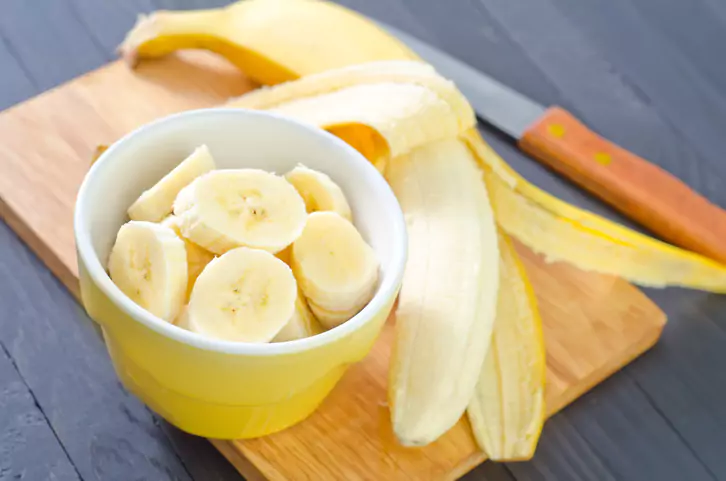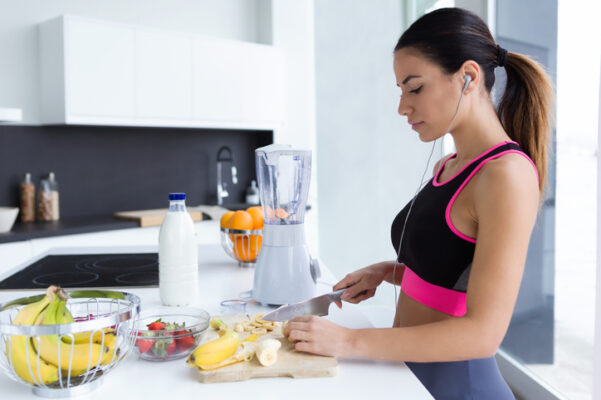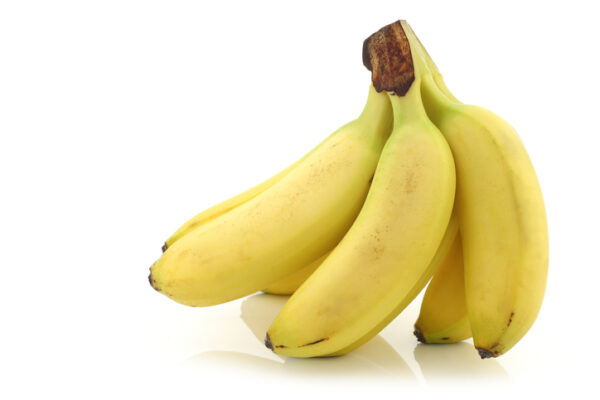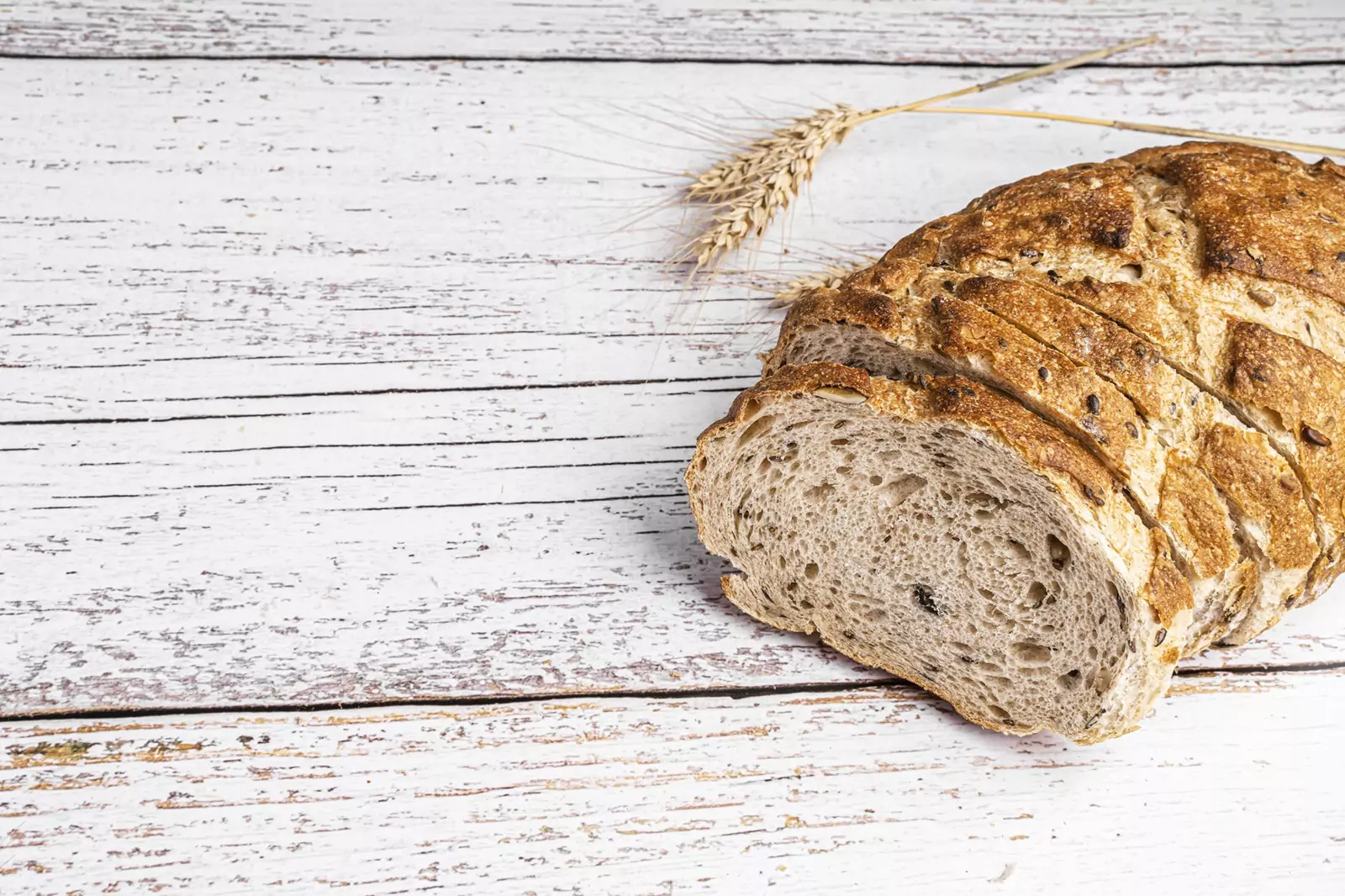
UP TO 40% OFF SITEWIDE






Bananas & Diabetes: How Diabetics Safely Benefits from A Sugary Fruit


Table of Contents
- Can a person with diabetes benefit from bananas?
- How many calories are in a small banana?
- How many calories are in a regular banana?
- How many calories are in a large banana?
- Frequently asked questions:
- How Many Net carbs are in a banana?
- Is a banana a day too much for a diabetic patient?
- When should you not eat bananas?
- Bananas Help In Reducing Pain Among Diabetics!
- Can bananas help prevent cancer in people with Diabetes?
- Results on Bile Acids
- Long Term Research
- Why Do Bananas Cause Stomach Pain?
- An allergy to bananas
- Intolerance to fructose and stomach discomfort
- Can Bananas Cause or Prevent Constipation?
- Some people believe that eating bananas can lead to constipation.
Although eating bananas can cause a spike in blood sugar levels, this does not mean diabetics are prohibited from eating them. Knowing how many calories are in a banana and how many carbs per banana is the key to understanding its effect on diabetes. Bananas can still be consumed safely by diabetics. As a matter of fact, bananas can be a part of a healthy diet for people with diabetes so long as they are consumed in moderation and combined with other foods with a low glycemic index.
Can a person with diabetes benefit from bananas?

Shot of sporty young woman cutting banana while listening to music in the kitchen at home.
Bananas are a nutrient-dense food that is rich in a variety of vitamins and minerals. For instance, a medium banana will provide you with about a quarter of the vitamin B6 that you require on a daily basis. Vitamin B6 is necessary for several different functions within the body, including the regulation of blood sugar and the production of hemoglobin.
Additionally, bananas are an excellent source of vitamin C. The daily recommended vitamin C intake for adults is between 75 and 90 milligrams, and a medium-sized banana has approximately 10% of that amount. Bananas, in addition to being rich in vitamins, are also an excellent source of magnesium. Magnesium is essential for maintaining healthy bones and blood sugar levels and helps regulate blood pressure.
It should come as no surprise that bananas are one of the most consumed fruits given how rich they are in nutrients. Bananas are a good source of fiber and potassium, two important nutrients for maintaining blood sugar levels. Fiber helps to slow down the digestion of carbohydrates, which can help to prevent blood sugar spikes after meals. Potassium helps to regulate insulin levels, which can also help to control blood sugar and A1c levels.
In addition, bananas contain magnesium, a mineral that is essential for proper insulin function. While you should always speak with your doctor before making any dietary changes, incorporating bananas into your meals may help regulate blood sugar levels and improve your overall health.
When selecting a banana, it is essential to choose one that is not overly ripe, as the higher sugar content of the fruit is in direct proportion to how soft it is. In addition, eating a banana alongside a food that is high in protein, such as peanut butter, can assist in maintaining stable levels of blood sugar. Therefore, if you have diabetes, you should enjoy bananas in moderation, but there is no requirement that you completely abstain from eating them.
How many calories are in a small banana?

Fresh bunch of mini bananas on a calorie count.
There are approximately 90 calories in a small banana. However, the total number of calories in a banana can differ significantly depending on the variety of banana. As an illustration, a red banana contains approximately 120 calories, whereas a plátano macho banana contains 160 calories. It does not matter which variety of banana you select; they are all excellent sources of various nutrients and antioxidants.
There are 23 grams of carbohydrates in a single small banana. Bananas are a good source of dietary fiber, potassium, and vitamins C and B6. They also contain carbohydrates, which the body uses for energy. While all types of fruit contain carbohydrates, bananas have a lower glycemic index than some other fruits, such as grapes and cherries. This means that they are less likely to cause spikes in blood sugar levels.
However, it is important to remember that all fruits should be eaten in moderation. Diabetics should consult with their healthcare providers to determine how many servings of fruit they should eat each day. For people with diabetes, it's important to be aware of the carbohydrate content of foods and to limit intake accordingly.
That being said, a banana can definitely be a part of a healthy diet for someone with diabetes. Bananas are a good source of fiber, vitamins, and minerals and can help regulate blood sugar levels. Just be sure to eat them in moderation and pair them with other low-carb foods to keep your overall intake in check
How many calories are in a regular banana?
About 105 calories and 3 grams of fiber can be found in a medium-sized regular banana. According to this general rule of thumb, a single portion of carbohydrates ought to contain no less than three grams of fiber. A medium banana contains 27 grams of total carbs. Eating a banana before or after you work out is a great way to give your body the fuel it needs.
It offers natural sugar, which can be used for energy, as well as fiber and vitamins, both of which are beneficial to recovery. In addition, bananas are an excellent source of the mineral potassium, which can aid in the regulation of blood pressure and the prevention of cramping. So the next time you're looking for a quick snack, grab a banana instead of reaching for something else!
How many calories are in a large banana?
The average large banana has 121 calories, making it an excellent choice for a nutritious mid-afternoon munch. A large banana contains 31 grams. 31 grams of carbs, which is a lot for a diabetic. However, the banana's content can help regulate blood sugar levels. The high fiber content helps to slow down the digestion process and the release of sugar into the bloodstream. In addition, bananas contain resistant starch, a type of carb not easily broken down by the body.
As a result, eating a large banana can be a good way for a diabetic to get some quick energy without having to worry about spikes in blood sugar levels. Of course, it is always important to check with a doctor or registered dietitian before making any major changes to your diet. Compared to other fruits, bananas have a sugar content that is lower than average, and they do not contain any fat or cholesterol.
As a result, they are an excellent selection of food for people who are working to keep their weight in a healthy range. Additionally, the antioxidants found in bananas can assist in defending cells against damage and contribute to an overall improvement in health. Bananas are widely regarded as one of the healthiest foods that can be purchased for several reasons, including those listed here.
Frequently asked questions:
How Many Net carbs are in a banana?
Did you know that the amount of carbs in a banana is calculated by deducting the amount of fiber from the total amount of carbs? If you didn't, now you know. For instance, a banana of typical size contains about three grams of fiber. You can figure out the total and net carbs if you look at the carb content on the label and then do the math. This is a straightforward method for ensuring that you consume an adequate amount of fiber in your diet while avoiding consuming excessive carbohydrates
Therefore, the next time you are curious about how many net carbs are in a banana, remember to subtract the amount of fiber from the total number of carbs in the banana. Easy peasy! When it comes to carbs, not all of them are created equal. The way your body processes different types of carbs can have a big impact on your blood sugar levels. That's why it's important to be aware of the "net carbs" in your food.
Net carbs are the total amount of carbs in a food, minus any fiber and sugar alcohols. Fiber and sugar alcohols are both carbs that your body doesn't digest the same way as other carbs. As a result, they don't have the same effect on your blood sugar levels. That's why net carb calculation can be an important tool for managing blood sugar levels, especially if you're following a low-carb diet.
Is a banana a day too much for a diabetic patient?
A banana a day might be too much sugar for some people. A medium banana has about 27 grams of sugar, which is about six teaspoons. That's more than the recommended amount of sugar for adults, which is less than six teaspoons or 25 grams per day.
For perspective, a can of soda has about 40 grams of sugar. However, bananas also have nutritional benefits like fiber, potassium, and vitamins. They are a good source of energy and can help you regulate blood sugar levels. So, eating a banana might not be the worst idea if you're looking to cut down on sugar. Just be sure to limit yourself to one a day.
When should you not eat bananas?
There are a few times when you should avoid eating bananas. If your blood sugar is already high, eating bananas can cause it to rise even further. Bananas are also high in potassium, so if your potassium levels are already too high, eating bananas can cause further problems. Finally, eating bananas at night should be avoided if you have a cough, cold, or breathing problems.
This is because the natural sugars in bananas can cause a spike in blood sugar levels, which can worsen these respiratory problems. Following these simple guidelines allows you to enjoy the many benefits of bananas without risking your health.
Bananas Help In Reducing Pain Among Diabetics!
Inflammation and pain are two side effects that might result from participating in sports or general exercise. Many people seek comfort from their symptoms by consuming a sports drink or taking an over-the-counter medication. But what if I told you that there is a food that can help with both of these problems? According to preliminary research that was carried out at the North Carolina Research Campus, bananas are just as effective as other pain relievers in reducing inflammation.
Eating bananas while exercising provides the same benefits as drinking sports drinks, and bananas contain metabolites that act similarly to ibuprofen. There are a number of different molecules that contribute to the effect that is being caused by dopamine, which serves as a COX-2 inhibitor. Dopamine is the key molecule that has this effect. They also discovered that banana peels contain 50 times more dopamine than the bananas themselves and that this substance might be used in food products. To confirm these results, we need to conduct additional studies.
Can bananas help prevent cancer in people with Diabetes?
Researchers from the University of Leeds were part of a multinational team that found that those with a high hereditary risk of cancer benefited greatly from consuming resistant starch. Oats, morning cereal, pasta, rice, peas, beans, and even slightly green bananas contain resistant starch. The CAPP2 research, which included over 1,000 people with Lynch syndrome from around the world, found that a regular dose of resistant starch, taken for an average of two years, had no effect on bowel malignancies but reduced tumors elsewhere in the body by more than half.
Ten years after discontinuing supplementation, this benefit was still evident for patients with malignancies of the esophagus, stomach, biliary tract, pancreas, and duodenum. Experts from Leeds and Newcastle University conducted the study, and it was published today in Cancer Prevention Research. It is a planned double-blind 10-year follow-up with additional information from the National Cancer Registry for up to 20 years in 369 of the participants.
Aspirin was found to reduce the chance of developing large bowel cancer by 50% in a previous study published as part of the same experiment. Incidence of tumors is decreased "We found that resistant starch decreases a range of malignancies by over 60%," stated Professor John Mathers of Newcastle University's Department of Human Nutrition. The impact could be felt most strongly in the upper digestive tract.
"This is significant since it is notoriously hard to diagnose and detect early-stage malignancies of the upper gastrointestinal system. You can find resistant starch in foods like peas, beans, oats, and other starchy foods, and you can also take it as a powdered supplement. According to the researchers, "the dose used in the trial is similar to eating a daily banana: the starch in bananas resists decomposition and reaches the colon where it can modify the type of bacteria that live there."
Results on Bile Acids
While other carbs are broken down in the small intestine, resistant starch ferments in the large intestine, providing food for good gut flora. Professor Mathers elaborated, "We suspect that resistant starch may minimize cancer formation by modifying the bacterial metabolism of bile acids and to reduce those forms of bile acids that can damage our DNA and finally cause cancer.
However, more study is required. "The results are interesting but the magnitude of the protective impact in the upper GI tract was surprising," said Professor Tim Bishop of the Leeds School of Medicine. "Further study is required to duplicate these findings."
Long Term Research
Approximately one thousand people started consuming resistant starch powder once daily for two years (between 1999 and 2005) or a placebo (sugar pill) (a powder that looked like resistant starch but was inactive). Overall, there was no correlation between resistant starch consumption and cancer incidence at the end of the treatment phase.
But the researchers had planned for further follow-up since they believed any protective impact would take longer to manifest. During the observation period, there were only five new incidences of cancer of the upper gastrointestinal tract among the 463 people who had taken the resistant starch and 21 among the 455 people who had taken a placebo.
Why Do Bananas Cause Stomach Pain?
Bananas Are Among the Triggers of Irritable Bowel Syndrome. Irritable bowel syndrome, or IBS, is characterized by symptoms like diarrhea and severe cramping. IBS can be brought on by specific meals in different persons.
According to Harvard Health Publications, bananas frequently create issues in people with IBS because when a banana breaks down in the intestines, it frequently results in extra gas. This typically doesn't cause issues for those with regular digestion, but if you have IBS, the gas and bloating you may experience after eating a banana could give you an upset stomach.
An allergy to bananas
Few people are actually allergic to bananas, but eating a banana may cause you to experience allergy symptoms if you have a condition called pollen-food allergy syndrome. A banana may trigger comparable symptoms if you have hay fever allergies and are aware that you are allergic to ragweed pollen.
Banana proteins resemble ragweed pollen in their characteristics, claims MayoClinic.com. If you have such an allergy, it may result in stomach pain or wheezing issues. Banana allergies can also occur in those who have birch or latex allergies.
Intolerance to fructose and stomach discomfort
Bananas contain fructose, a simple sugar present in a variety of fruits. According to the USDA National Nutrient Database, each banana contains about 5% fructose, despite the fact that they have lower concentrations than juicier, sweeter fruits. Because they are unable to break down fructose in the gut, some people have adverse reactions to it. Hereditary fructose intolerance is the medical term for this illness. Fructose intolerance is typically identified before birth.
Can Bananas Cause or Prevent Constipation?
Bananas contain a lot of fiber. Bananas are one of the most popular fruits in the world. They're a quick and easy snack that's also extremely healthy. Bananas are high in fiber and high in several important vitamins and minerals, with one medium banana containing about 3.1 grams of this nutrient. Fiber has long been claimed to aid in the prevention and relief of constipation. Soluble fiber absorbs water, which keeps stools large and soft. This may aid in the passage of stool through your digestive tract.
However, the evidence for fiber's ability to relieve constipation is conflicting and surprisingly weak, especially given how many health professionals advise constipated patients to consume a high-fiber diet. According to some studies, soluble fiber can help relieve constipation. Other studies, on the other hand, suggest that reducing dietary fiber intake may help in some cases. Individuals appear to differ in their ability to relieve constipation by increasing their fiber intake.
The type of fiber you consume is also important. Green bananas contain a lot of resistant starch. A complex carbohydrate with fiber-like properties is resistant starch. It avoids digestion in the small intestine and makes its way to the large intestine, where it feeds the beneficial bacteria that live there. It is beneficial to feed these bacteria. They produce short-chain fats, which aid digestion and have a positive effect on metabolism.
A banana is almost entirely starch before it ripens, accounting for up to 70-80% of its dry weight. This starch contains a significant amount of resistant starch. The amount of starch and resistant starch in a banana decreases as it ripens and is converted into sugars. Resistant starch functions similarly to soluble fiber and can aid in constipation relief.
According to one study, feeding constipated mice resistant starch from bananas accelerated the movement of stools through their intestines. Finally, green bananas have been used to treat diarrhea in both children and adults. These characteristics are attributed to their high resistant starch content.
Some people believe that eating bananas can lead to constipation.
There are a lot of publications on the internet that say bananas are to blame for constipation. Even though this hasn't been proven by any studies, there is a school of thought that holds that they are a contributor to the development of this ailment. In one piece of research, German scientists looked into people's perceptions of the effects different foods have on the consistency of their stools.
They polled the following three groups: IBS: 766 patients were diagnosed with irritable bowel syndrome (IBS), the most common symptom of which was constipation. Constipation. 122 patients presented with symptoms of constipation. Control.
The control group consisted of two hundred people who were in good health. When asked whether foods or beverages caused constipation, bananas were reported by 29–48% of respondents across all three groups that were polled. In point of fact, only white bread and chocolate were mentioned more frequently.
Advanced Glucose Support for those who can't give up on bananas but want normal blood sugar.
Who is Dr. Ergin? Dr. Ahmet Ergin is an endocrinologist interested in and passionate about diabetes care. He is the Founder of SugarMD Youtube Channel Dr. Ergin earned his medical degree with honors at Marmara University School of Medicine in Istanbul, Turkey.
Then, he completed his internal medicine residency and endocrinology fellowship at Cleveland Clinic in Cleveland, Ohio. He is a board-certified Internal Medicine and Endocrinology, diabetes, and metabolism physician. He is also a certified diabetes education specialist.
Disclaimer: Any information on diseases and treatments that may be found on this website is provided solely for the purpose of providing general guidance and should never, under any circumstances, be used in place of the advice provided by your physician or another qualified healthcare professional. When you have questions or concerns about your current medical condition, you should never hesitate to consult with your primary care physician or another appropriately.
Written By Dr. Ahmet Ergin
466 total articles
Meet Dr. Ahmet Ergin, a highly skilled and dedicated endocrinologist with a passion for diabetes care. Dr. Ergin earned his medical degree with honors from Marmara University in Istanbul. He completed internal medicine residency and endocrinology fellowship at Cleveland Clinic. Dr. Ergin is board-certified in Internal Medicine, Endocrinology, Diabetes, and Metabolism due to his vast medical expertise. He's a certified diabetes educator, author of “The Ultimate Diabetes Book,” and founder of “the SugarMD YouTube channel.” Dr. Ergin offers exceptional diabetes care to his patients in Port Saint Lucie, FL, helping them manage effectively. For a closer look into his insights and experiences, connect with Dr. Ahmet Ergin on LinkedIn, Instagram, and YouTube.”
Disclaimer: These statements have not been evaluated by the Food and Drug Administration. Information on this website isn't intended to treat, cure or prevent any disease. Discuss with your doctor and do not self-treat.
Products













